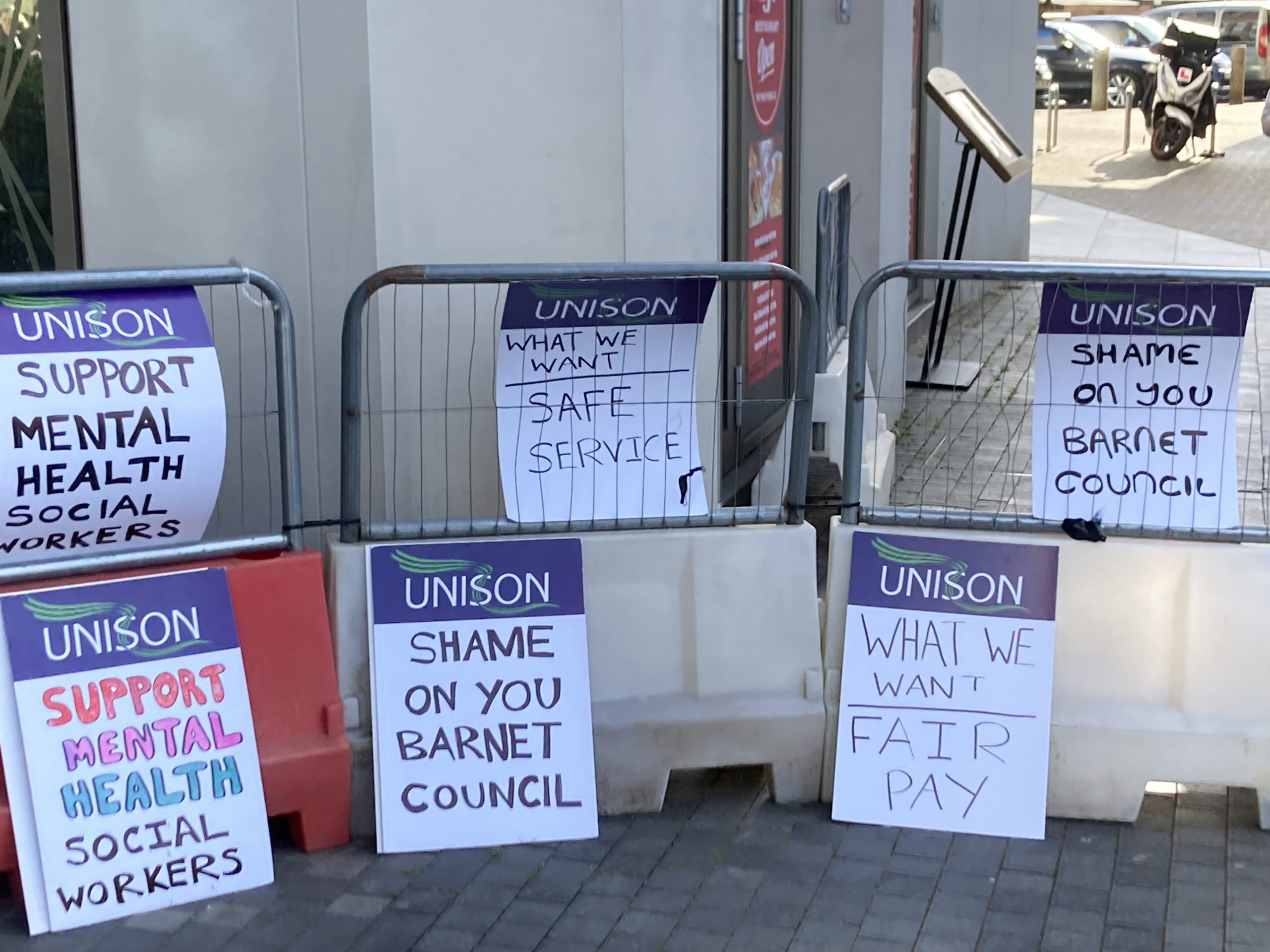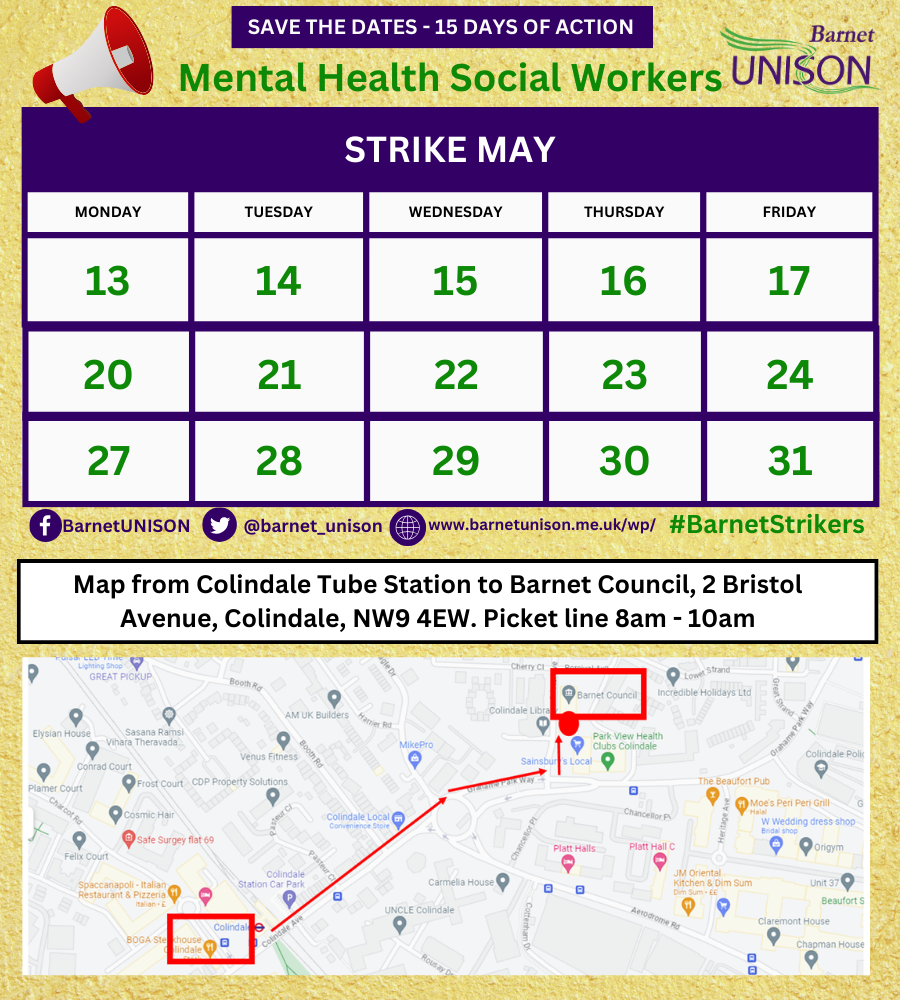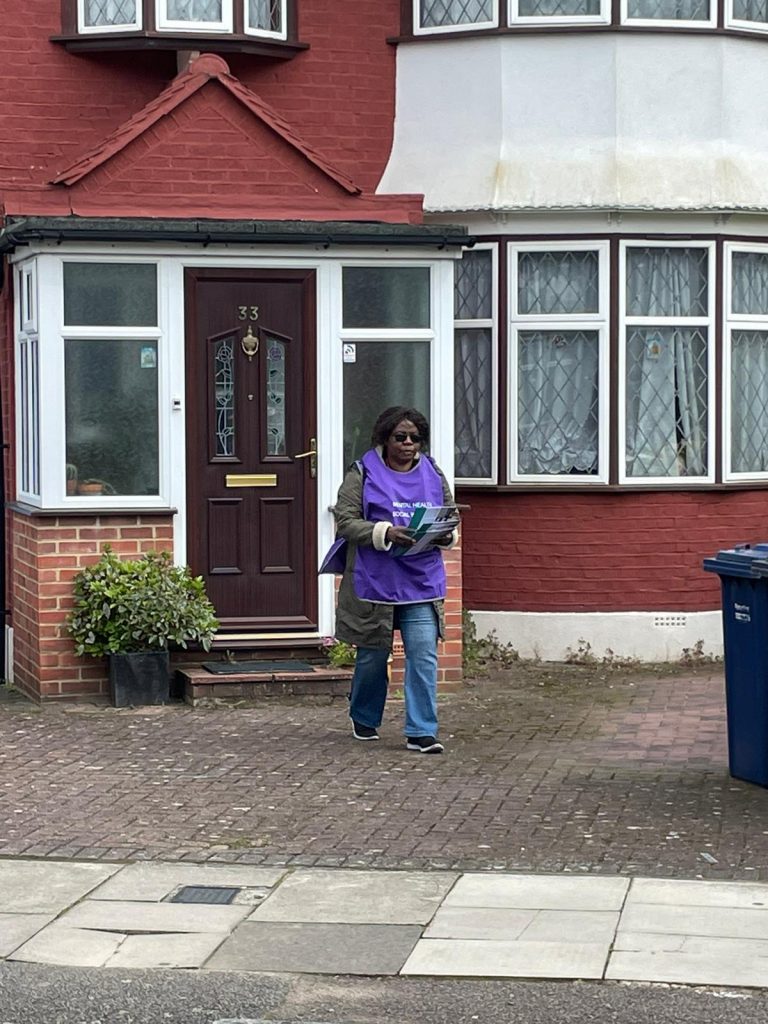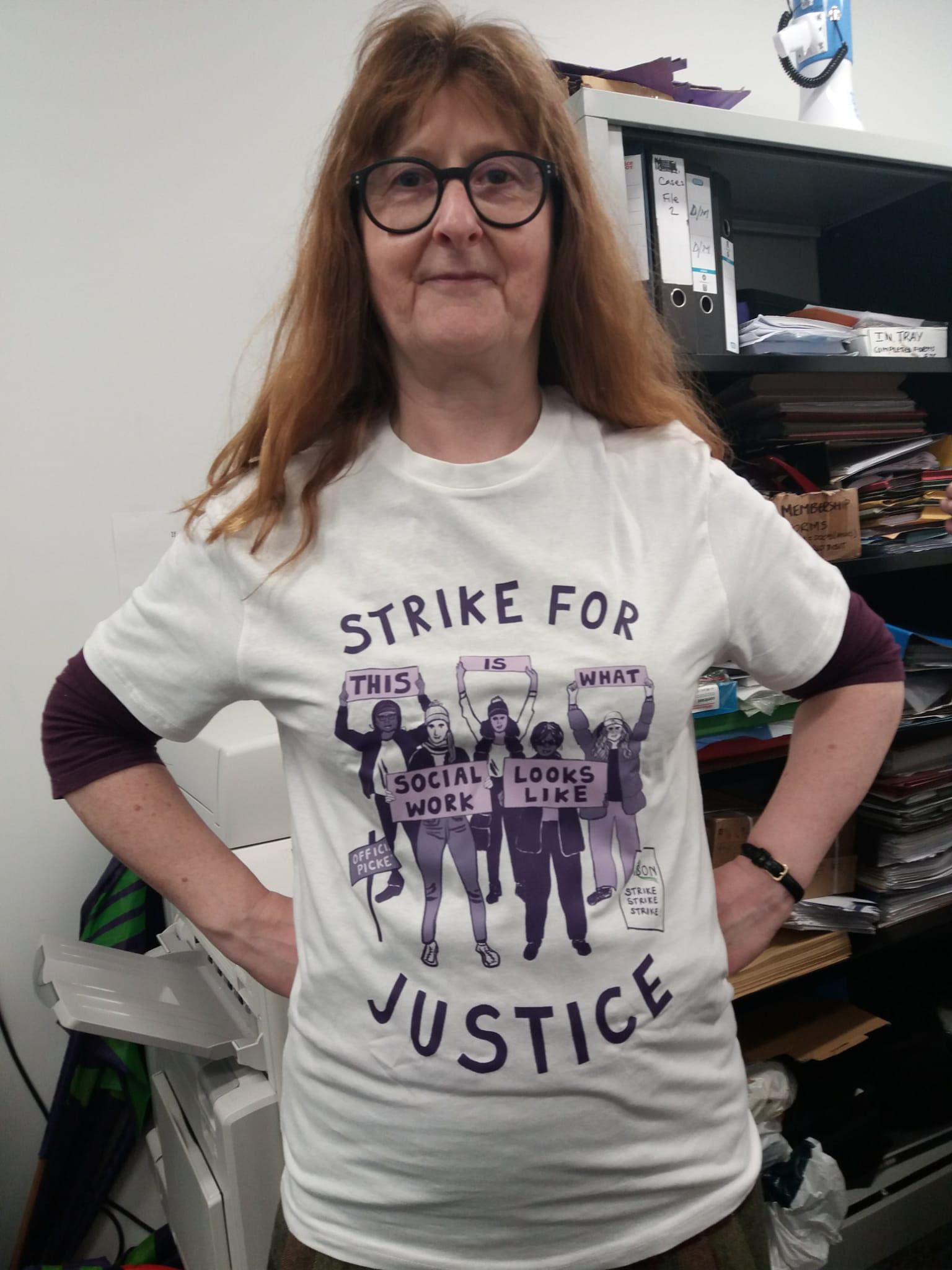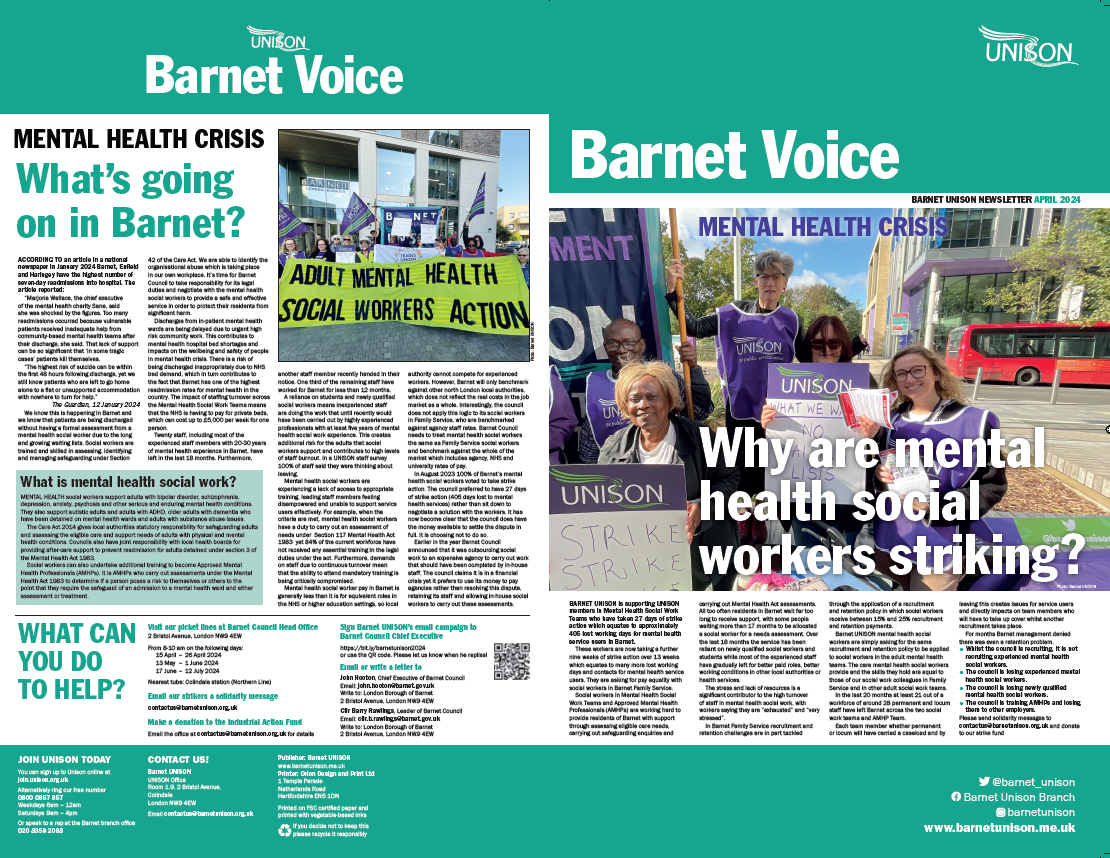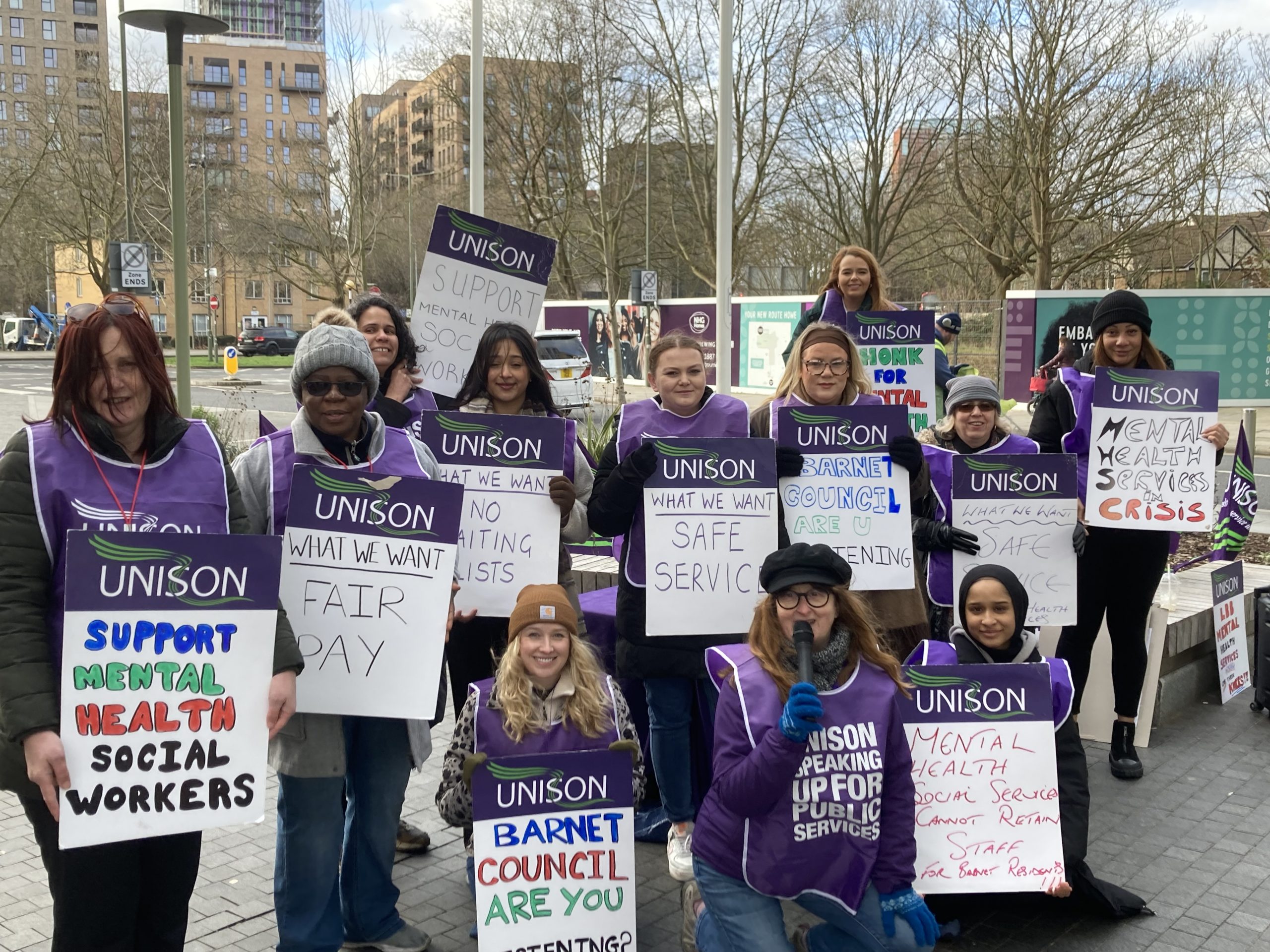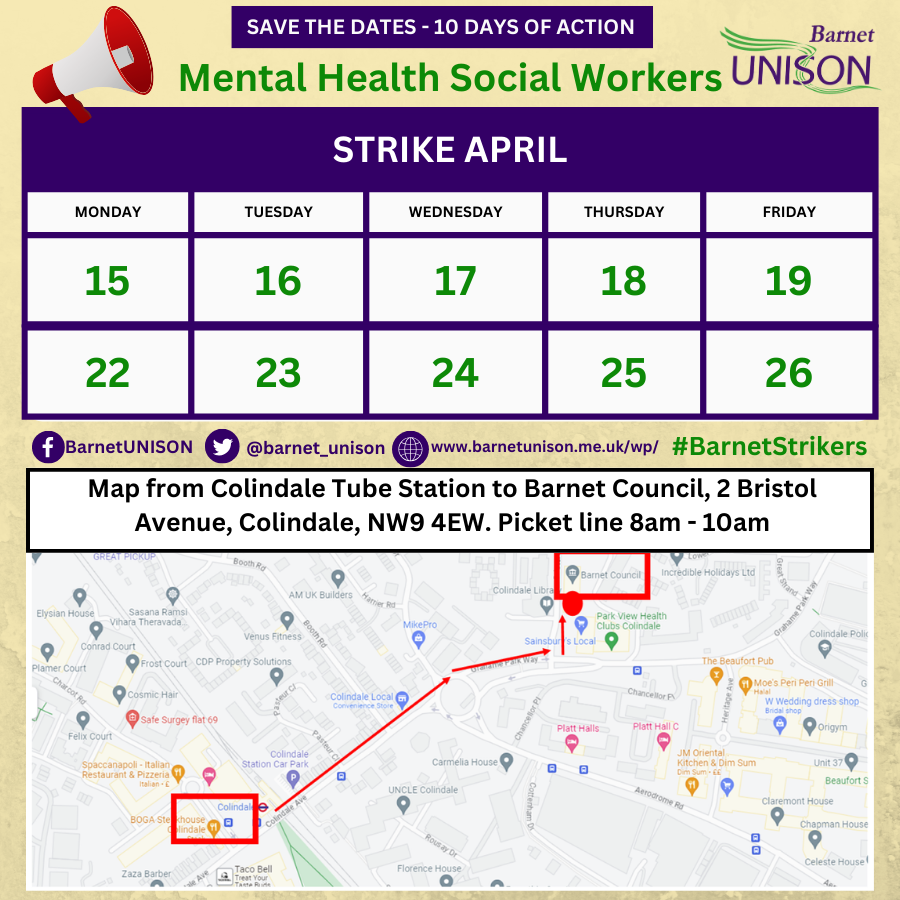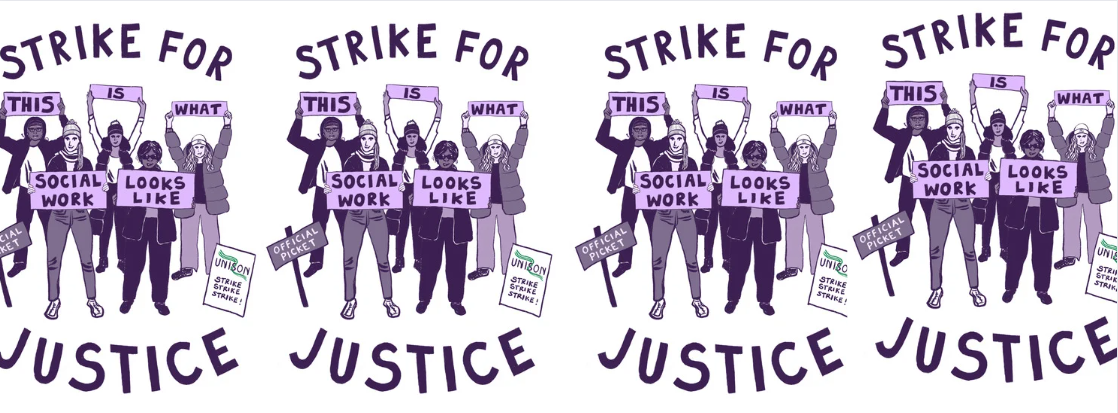
For the past two years Barnet UNISON has tried to engage with senior management in Adult Social Care to address the chronic exodus of experienced Mental Health social workers from the frontline Mental Health teams. There has been a catastrophic failure to understand the fundamental risks both for service users and staff because of the ongoing turnover of staff.
Our strikers have already taken 27 days of strike action and by the end of this next phase they will have taken 72 days of strike which equates to 1,305 lost working days or 13.050 lost contacts with Mental Health service users.
Below is a email which was sent by an ex Mental Health social worker. I will repeat what I have repeatedly said to senior management: “Don’t listen to me, listen to someone who actually works in these services, they are the ones who know what is happening and how bad it is.”
After you have read the email below, I hope you can do one of the following:
- Visit the picket line outside Colindale on Monday 15 April between 8-10 am
- Send a message of support to contactus@barnetunison.org.uk
Best wishes
John Burgess, Branch Secretary, Barnet UNISON.
“Dear Executive Director Adult Social Care
I am writing to you as an ex-Barnet mental health social worker in the hope that when you read my experience it will encourage you to meaningfully negotiate with striking social workers.
I left because the conditions that social workers were working in were unsafe for workers and unsafe for service users. I was part of efforts to alter this for 2 years. These efforts started as hopeful conversations with managers in which we expressed our concerns and were promised changes and ended with strike action as the situation worsened and none of the promises made by managers were fulfilled. In my first couple of weeks as a student mental health social worker in LBB I remember the Director of Adult Social Care asking me if I hoped to stay when I qualified. I replied that I couldn’t see a reason to leave as the location was good, the work interesting and the team supportive but after trying my best to stay, I realised that doing so would be to the detriment of my health and wellbeing due to under-resourcing, a reliance on junior staff for exceptionally complex work and huge waiting lists growing ever longer (to name just a few reasons).
The community mental health social work teams work with adults with some of the most complex and enduring mental health needs. They work with adults whose mental health has impacted their ability to complete the activities everyone needs to do in order to survive such as eating, safely using their homes, taking medication and attending essential medical appointments. They also work with adults where there are safeguarding concerns including concerns about self-neglect which is the most common category of abuse found in adult safeguarding reviews. However despite the complexity and risk involved in community work, it is viewed as “non-specialist”.
In my new role as a social worker in an NHS specialist mental health team my salary is 10% higher than it was in a community team while my caseload involves working with fewer adults at risk of serious harm and in which risk is shared among a multi-disciplinary team including psychiatrists, psychologists and community nurses who have decades of mental health experience between them. This experience safeguards the adults we work with and reduces the likelihood of individual practitioners feeling overwhelmed and stressed which is a leading cause of staff burnout in Barnet.
Alongside improved pay, more manageable caseloads, better resources and being able to learn from experienced mental health practitioners I also currently benefit from specialist training, better lone working practices and team administrative support. When I worked for LBB one of the arguments managers gave as to not provide a recruitment and retention payment was that social workers experience the same issues wherever they work and conditions and pay are the same everywhere. This is something said to keep social workers in their place and to stop them asking for improvements. I am proof that it is not true.
In the two months since I left LBB my mental health, physical health and work/life balance has improved. My colleagues who remain do so because they are trying their best to create working conditions that will enable them to stay in their jobs so they can support residents of Barnet but so far management seems to be against its workers and against supporting adults in Barnet who would benefit from the expertise and support of specialist, experienced community mental health social workers.
Please meaningfully negotiate with UNISON before all the mental health social workers leave or become unwell. It is your responsibility to work with social workers towards a solution but at the moment it feels senior management are hiding their heads in the sand which feels insulting to the social workers whose health is being put on the line trying to provide the service that Barnet residents deserve.
Yours sincerely,
Ex Barnet Council Mental Health social worker.”
End.
